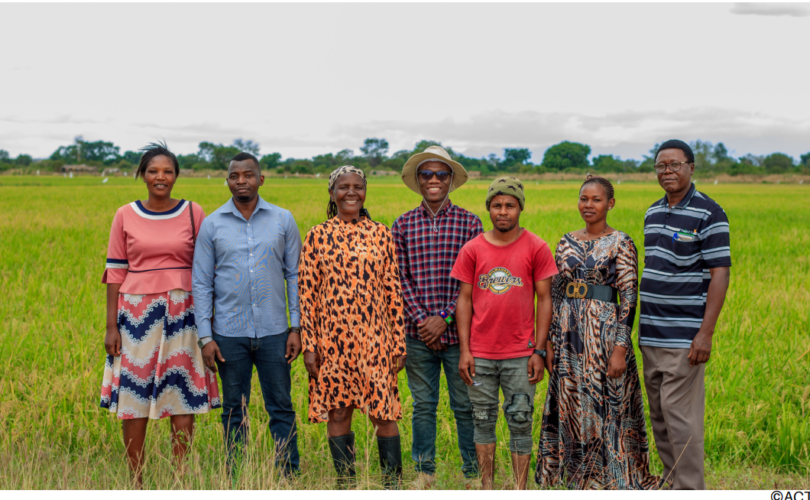Social capital is defined as the enduring connections of networks, reciprocity and social norms that exist among a group of people. In farming, social capital has various benefits such as facilitating farmer-to-farmer knowledge sharing, increasing access to information, and connecting farmers to different sources of support.
In Tanzania, social capital was a key contributor to the success of the implementation of System of Rice Intensification (SRI), as part of the activities the Agricultural Council of Tanzania (ACT) implemented in the framework of the Farmers’ Organizations for Africa, Caribbean, and the Pacific Programme. SRI is an agro-ecological methodology that increases the productivity of irrigated rice by changing the management of plants, soil, water, and nutrients. Recently the adoption of this method has achieved exponential gains. As this experience illustrates, forging positive relations between farmers was a critical component.
The Agricultural Council of Tanzania (ACT) took great care in creating the conditions that would ensure as many people as possible could benefit from adopting SRI. One important aspect was the farmer-to-farmer approach.
In prior models for the implementation of SRI in Tanzania, results were not as positive. One of the reasons being only a few families were introduced to the technology and received technical support from research institutions. This time around, the approach was radically different. ACT implemented a participatory and inclusive approach. Participation was open to anyone interested and the farmer-to-farmer approach was adopted.
As part of this approach, ACT organized meetings at the village level that were administered by lead farmers. Lead farmers were trusted individuals who were willing to be trained in SRI techniques and share their knowledge with others.
ACT built the capacity of staff that would provide technical support to the lead farmers. The first round of training was given to selected lead farmers and focused on the theoretical foundations of SRI. It was followed by a practical training on the 9 steps of SRI. Afterwards, lead farmers were tested on the topics learned to assess their mastery of the content. Finally, to sharpen farmers’ skills even further, refresher trainings were continuously provided.
The results are promising. Many have formed groups of 25-30 to work together to solve problems, source inputs, and sell their produce. Some farmers are also taking steps to formalize these groups and establish regulations that govern their operations. They hope to continue these relationships well after the completion of the FO4ACP programme. ACT has also created incentives for farmers to help one another. This includes linking farmers who are in groups with credible financial institutions with low interest rates.
Efforts have certainly paid off and ACT has taken steps to ensure that farmers’ groups are sustainable. As institutional strengthening is at the core of the FO4ACP Programme, ACT plans to further strengthen the groups by training farmers on leadership, management, and interpersonal skills, to build stronger groups and farmers’ organizations from the local up to the national level. ![]()
ACT_Tanzania_SRI

